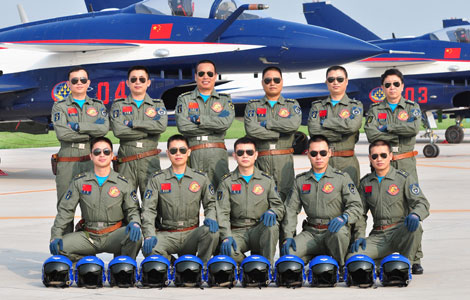A local zoo in Luohe, Henan province, has been fooling tourists by labeling a Tibetan mastiff as an African lion, and at least four out of 20 animals are deliberately misnamed. Compared with those profit-driven and seemingly genuine fakes in the market, such blatant and nonchalant misrepresentation is worth wider caution when the education of the country's children is at stake, says an article in Chengdu Business Daily. Excerpts:
It is simply ill conceived to fool tourists by putting a dog into a wolf or lion's cage. The act is enough to draw doubts about whether zoo staff members even care if tourists find out or of the consequences. When we refer to counterfeit, those counterfeiters would at least follow their "professional standards" to mix the spurious with the genuine. But the zoo's casual attitude is still too astonishing.
Besides, what has triggered public outrage most has been the act of presenting fakes to juveniles under the name of education and for the popularization of science. For example, a museum in Hebei, which displays shoddy counterfeits of historic relics and was exposed thanks to a widely circulated micro blog, could have been an educational exhibit for local students. And for the Luohe case, many of the visitors at the zoo were mainly children from urban areas whose only opportunity to see wildlife is at the zoo.
Food counterfeits harm people's health, while fake knowledge hurts people's wisdom. The mislabeling of several animals, to a certain degree, signifies the dual deficiency of knowledge and morals in the adult world.
Think about the damage that is done to a child's academic development when a zoo tries to disguise a Tibetan mastiff as a lion, or a pear flower as a cherry blossom. It is time we reflect on the kind of world we should and will present to the next generation.

 PLA aerobatic team's overseas debut
PLA aerobatic team's overseas debut
 Wild Africa: The new attraction to Chinese tourists
Wild Africa: The new attraction to Chinese tourists
 Peng Shuai, Hsieh Su-wei win Cincinnati title
Peng Shuai, Hsieh Su-wei win Cincinnati title
 Ride to fly on the top of mountains
Ride to fly on the top of mountains
 500th eruption of Sakurajima Volcano in 2013
500th eruption of Sakurajima Volcano in 2013
 A cocktail that's a treat for the eyes
A cocktail that's a treat for the eyes
 Nadal beats Isner to win first Cincinnati crown
Nadal beats Isner to win first Cincinnati crown
 Azarenka beat Williams for Cincinnati title
Azarenka beat Williams for Cincinnati title















